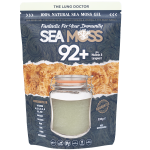SELENIUM
SELENIUM

What is selenium?
Selenium, an essential mineral, is required by the body in small quantities for proper functioning. It plays a crucial role in the formation of selenoproteins, which are enzymes and proteins that perform important functions in the body.
Selenoproteins have various roles, including antioxidant activity, regulation of thyroid hormone metabolism, immune system function, and DNA synthesis. Selenium’s involvement in these processes highlights its significance for overall health and well-being.
While selenium is necessary for optimal health, it is important to maintain a balance, as excessive intake can be harmful.
Scientific research has provided valuable insights into the relationship between selenium levels and certain health conditions. A study examining the association between selenium and thyroid function found that lower levels of selenium in the blood were linked to an increased risk of hypothyroidism and autoimmune thyroiditis.
Selenium plays a crucial role in thyroid hormone metabolism, and its deficiency may impact thyroid function. Another study conducted in China observed that asthmatics with higher selenium levels in their blood demonstrated better lung function compared to those with lower selenium levels.
This suggests a potential beneficial effect of selenium on respiratory health, although further research is needed to fully understand the underlying mechanisms. These studies highlight the importance of adequate selenium intake for maintaining thyroid function and supporting respiratory health.
DIVE DEEPER
How much does the body need per day?
Age |
Male |
Female |
|---|---|---|
|
1 to 3 years: |
20 mcg |
20 mcg |
|
4 to 8 years: |
30 mcg |
30 mcg |
|
9 to 13 years: |
40 mcg |
40 mcg |
|
14 to 18 years old: |
55 mcg |
55 mcg |
|
19 to 50 years: |
55 mcg |
55 mcg |
|
51 years and over: |
55 mcg |
55 mcg |
|
During pregnancy: |
|
60 mcg |
|
Lactation |
|
70 mcg |












